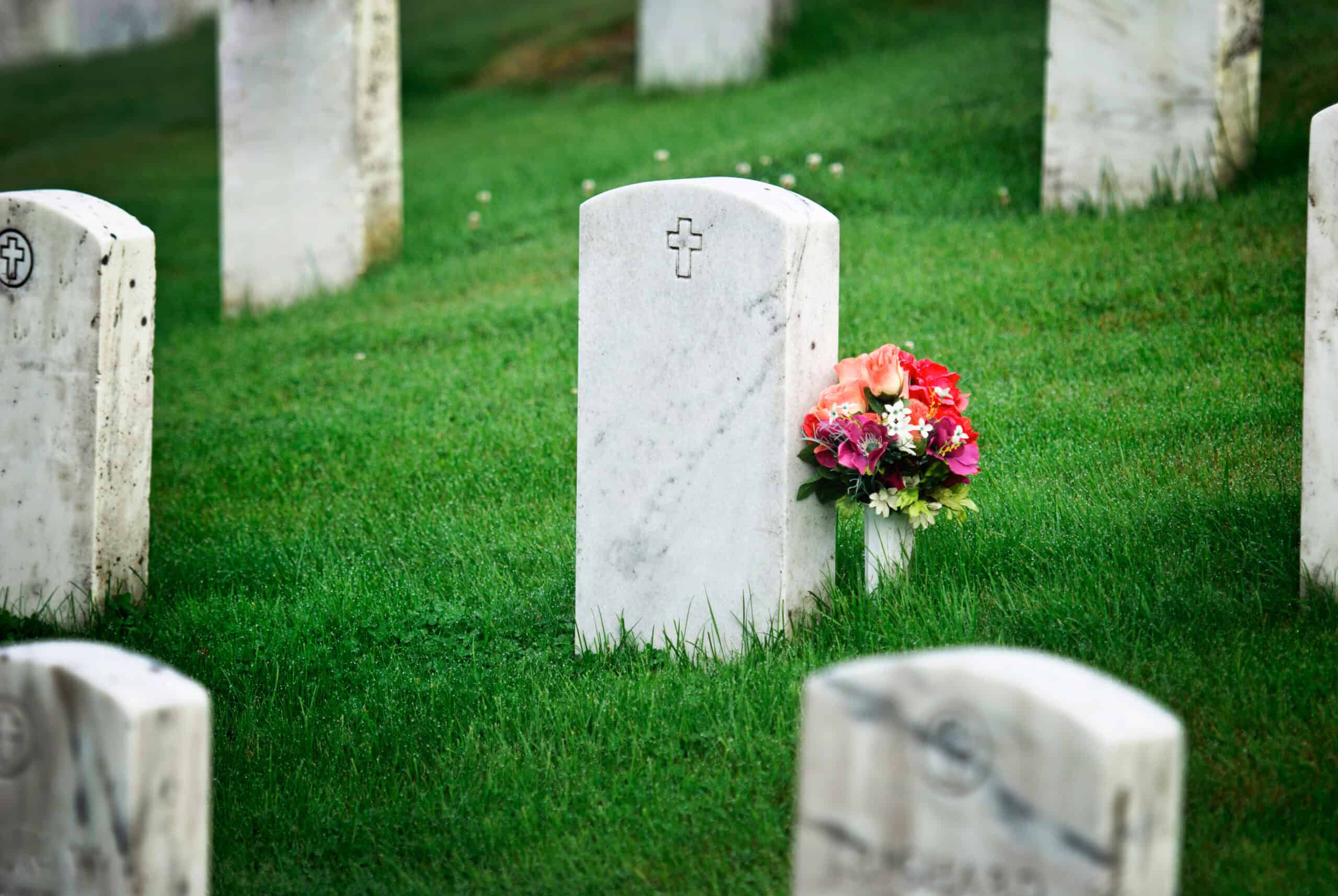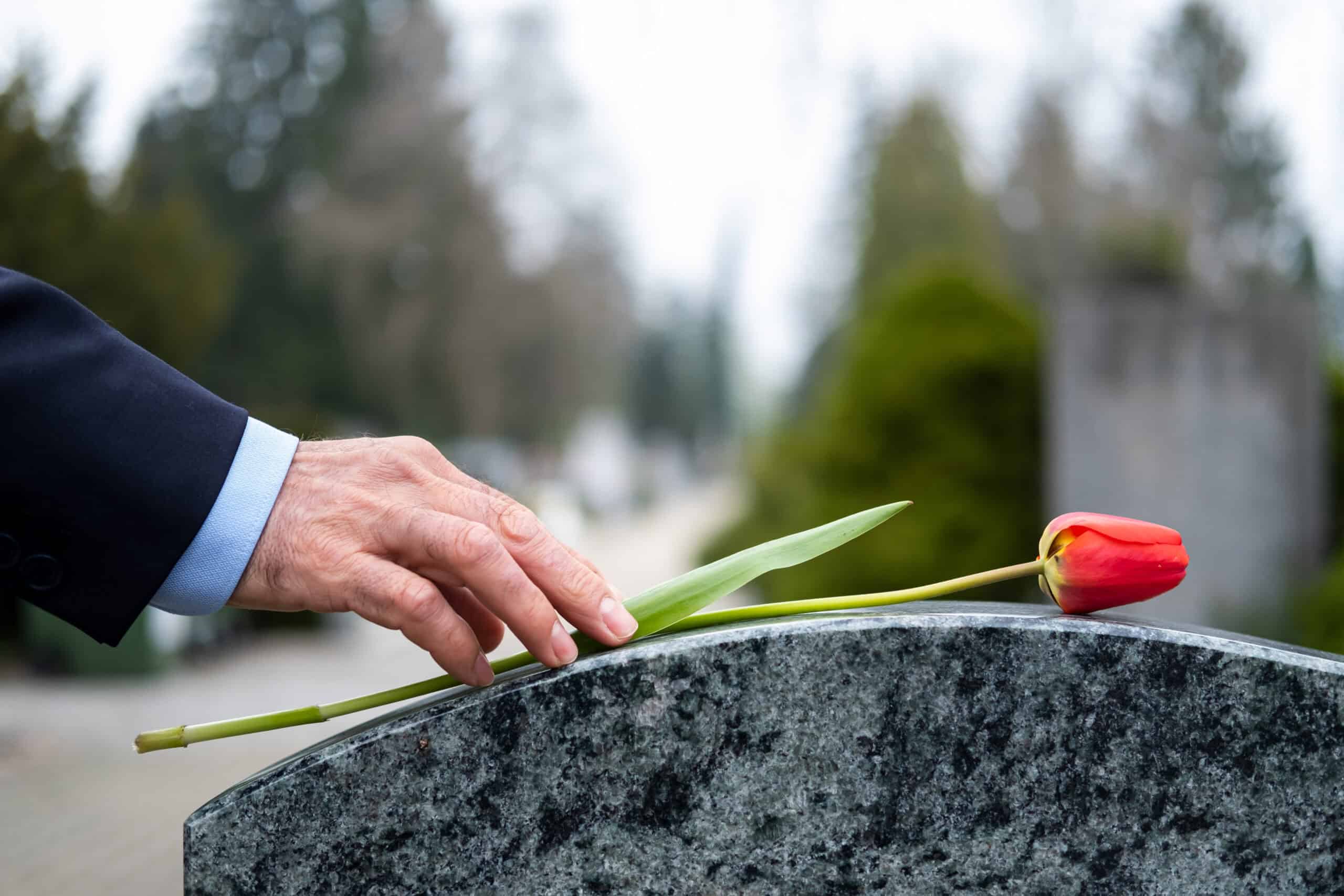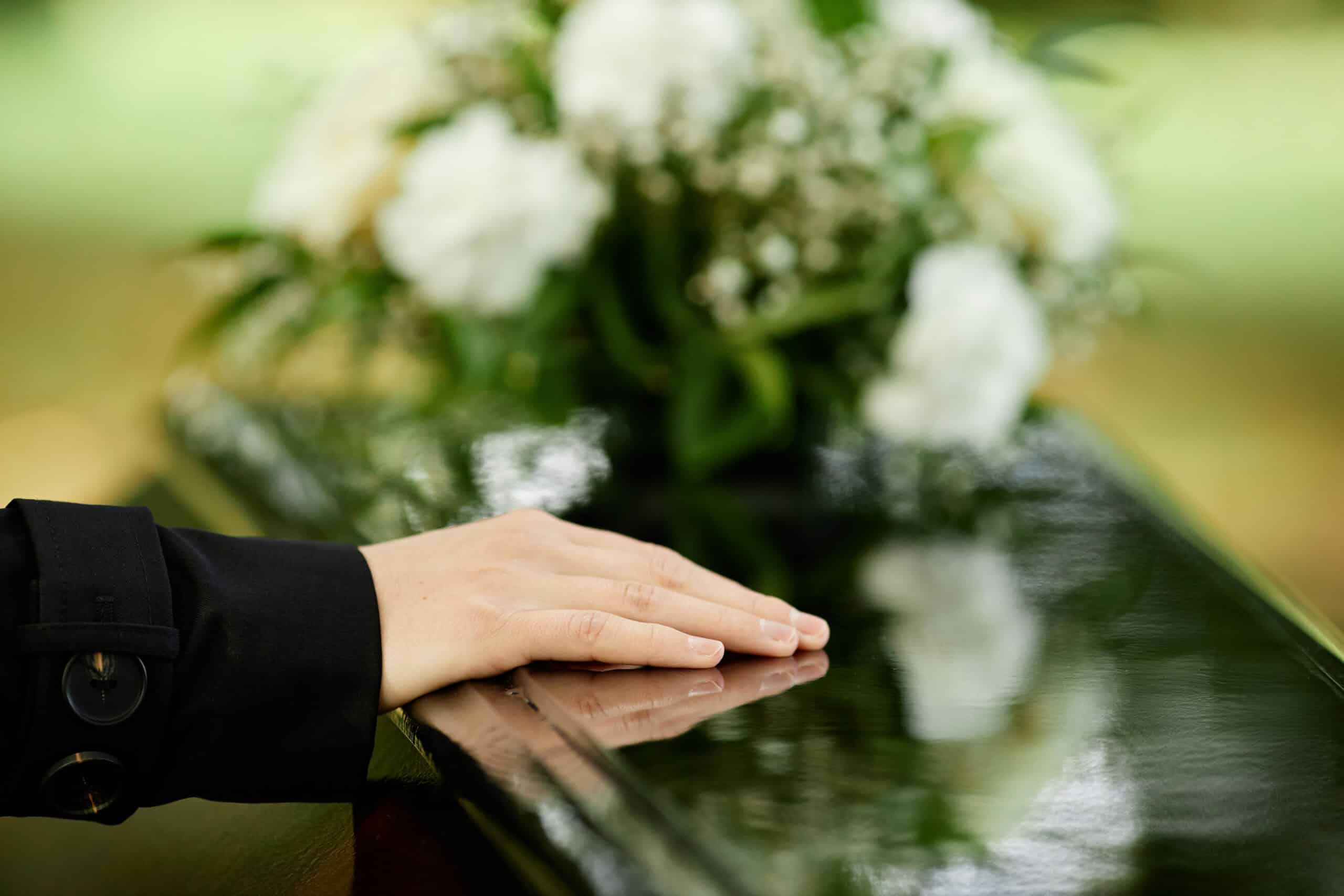The Elements of a Wrongful Death Claim in Indiana
Understanding the emotional and financial turmoil that wrongful death inflicts on families, Doehrman Buba Ring stands as a beacon of hope and support. With extensive experience in wrongful death claims within Indiana, our dedicated team of wrongful death attorneys offers compassionate legal representation tailored to secure the justice and compensation families deserve. Recognizing the profound sadness that accompanies such losses, we commit to guiding our clients through the legal process with sensitivity and respect, aiming to alleviate some of the burdens during these challenging times.
In the state of Indiana, a wrongful death claim arises when an individual dies due to the legal fault of another party. To successfully prove wrongful death, the surviving members of the estate must demonstrate that the recklessness, carelessness, or negligent actions of the defending party caused the death of their loved one. To prove negligence, they must prove the following four elements.

Duty
For a wrongful death claim to stand, it is requisite for the plaintiff to establish that the defendant had a duty to the deceased. This duty can vary depending on the relationship between the parties and the circumstances leading to death. For example, motorists have a duty to obey traffic laws and drive safely to avoid harming others, and medical professionals have a duty to provide standard care to their patients.
Breach of Duty
Once a duty of care has been established, it must then be proven that the defendant breached that duty through their actions or lack thereof. A breach can occur in various ways, whether through a direct action that causes harm or by failing to act in a situation where action was necessary to prevent harm. In wrongful death cases, showing how the defendant’s failure to adhere to their duty directly contributed to the death is crucial.
Causation
Plaintiffs also must prove that the defendant’s negligence directly caused the death of the loved one. This means showing a direct link between the defendant’s action or inaction and the death.
Damages
The death of the individual must have generated quantifiable damages such as hospitalization costs, medical expenses, funeral and burial costs, loss of income and potential earnings, loss of protection, care, and guidance, along with pain and suffering of the deceased before death.
These elements form the backbone of a wrongful death claim in Indiana, and establishing each is crucial to the case’s success.

Understanding the Indiana Wrongful Death Statute
The Indiana Wrongful Death Act provides the legal framework for pursuing a wrongful death claim within the state. This statute is particularly significant because it defines who is eligible to file a wrongful death lawsuit, the types of damages that may be recovered, and any limitations on the amount of compensation. Specifically, Indiana law allows the deceased person’s estate, through a personal representative, to file the lawsuit. However, the damages awarded are for the benefit of the surviving family members, such as the spouse, children, or dependent next of kin.
One of the unique aspects of the Indiana Wrongful Death Act is the differentiation it makes based on the deceased’s familial and financial situations. For instance, the statute has specific provisions for cases involving adult persons who are not married and do not leave dependents, as opposed to those who have surviving spouses or dependents. This can significantly impact the types of damages that can be claimed.
Furthermore, the statute imposes a cap on certain types of damages and specifies a time limit, known as the statute of limitations, within which a wrongful death claim must be filed. This time frame is typically two years from the date of death but can vary under specific circumstances.
The Indiana Wrongful Death Statute provides the necessary framework so that the families of those who have lost their lives due to the negligence or wrongful actions of others can secure justice and compensation. The skilled legal team at Doehrman Buba Ring has extensive experience with wrongful death cases and understands the nuances of this statute to support these families’ recovery.
Filing a Wrongful Death Lawsuit in Indiana
Who Can File a Wrongful Death Lawsuit in Indiana?
In Indiana, the right to file a wrongful death lawsuit is not open to everyone. The state laws specify that the personal representative of the deceased’s estate is the party entitled to file the lawsuit. This personal representative could be an executor named in the will or an administrator appointed by the court in cases where there is no will. While the lawsuit is filed by the personal representative, any damages awarded are for the benefit of the deceased person’s surviving family members. This can include the spouse, children, dependents, and, in some cases, parents. However, the specific distribution of any awarded damages follows Indiana’s laws on estate succession, ensuring that the compensation supports those most affected by the loss.

Statute of Limitations for a Wrongful Death Lawsuit in Indiana
Understanding the statute of limitations is critical for families considering a wrongful death lawsuit in Indiana. The statute of limitations sets the maximum time after an event within which legal proceedings may be initiated. In Indiana, the statute of limitations for filing a wrongful death lawsuit is generally two years from the date of death. This means that if legal action is not taken within this period, the right to file a lawsuit may be lost forever.
There are exceptions that may extend or shorten this timeframe under certain circumstances. For example, if the death was caused by a wrongful act like a criminal action, such as murder, different rules may apply. Additionally, claims against governmental entities may have shorter notice requirements. Because the statute of limitations can vary based on specific factors, consulting with a knowledgeable wrongful death attorney early can help ensure that your rights are protected and that any legal action is taken within the appropriate time limits.
Damages Recoverable in Indiana Wrongful Death Actions
In wrongful death lawsuits within the state of Indiana, the types of damages that can be awarded to the survivors or the estate of the deceased are varied but aim to provide comprehensive compensation for the loss suffered. The awarded damages generally cover both economic and non-economic losses.
Economic damages include:
- Medical expenses related to the deceased’s final illness or injury,
- Funeral and burial costs, which cover the expenses associated with laying the deceased to rest,
- Lost wages and benefits, including what the deceased would reasonably have been expected to earn had they not died,
- Loss of future earnings for the deceased’s expected working life span,
- Costs associated with damaged property, if applicable.
Non-economic damages encompass:
- Loss of love and companionship, which compensates the surviving family members for the emotional pain caused by their loved one’s death,
- Loss of care, guidance, and nurture that the deceased would have provided to their dependents,
- Pain and suffering of the deceased prior to death, if evidence suggests they experienced suffering before death.
While economic damages are typically not capped in Indiana, non-economic damages in wrongful death cases involving adult persons without dependents can be limited. Specific caps may apply depending on the nature of the case and the decedent’s circumstances at the time of death.
Damages Caps in Indiana Wrongful Death Actions
In Indiana, while the goal of a wrongful death lawsuit is to secure compensation for the survivors of the deceased, it’s important to note that not all types of damages are limitless. The Indiana Wrongful Death Act sets caps on certain types of damages, particularly in cases involving the wrongful death of an unmarried adult without dependents. In these situations, the total damages for hospital, medical, funeral, and burial expenses, and for the administration of the estate and attorney’s fees, cannot exceed a certain amount defined by the statute.
For deaths involving a child, the Indiana Child Wrongful Death Act applies, which also contains specific limitations on the recovery of damages. Under this statute, damages may include medical, hospital, funeral, and burial expenses, and the loss of the child’s services and companionship. However, unlike cases involving adults, there is no statutory cap on the total damages that can be awarded for the wrongful death of a child.
In cases where the deceased was a wage earner and had dependents relying on their income, the law seeks to compensate for the financial loss suffered by these dependents. Yet, this too comes with its complexities and limitations based on various factors, including the deceased’s expected lifetime earnings and possible contributions to dependents.
Given these variations, navigating the landscape of damages caps in wrongful death suits in Indiana requires a thorough understanding of the law. Consulting with an attorney proficient in wrongful death cases at Doehrman Buba Ring is critical to accurately assess potential damages and ensure that the claim aligns with statutory limitations.

Common Causes of Wrongful Death
A wrongful death case can arise from a multitude of scenarios where negligence or intentional harm leads to the loss of life. Some of the most common causes include:
Motor Vehicle Accidents
These are among the leading causes of wrongful death claims. Factors such as drunk driving, speeding, distracted driving, and failure to follow traffic laws can result in fatal accidents, attributing legal fault to the negligent driver.
Medical Malpractice
When healthcare professionals fail to provide the standard of care required in their profession, leading to a patient’s death, it can give rise to a wrongful death suit. This includes errors in diagnosis, treatment, surgery, or medication management.
Workplace Accidents
Fatal accidents can occur in high-risk work environments like construction sites and manufacturing plants or through exposure to hazardous substances, leading to a wrongful death case. Employers may be liable if negligence in maintaining a safe work environment is proven.
Product Liability
Manufacturers, distributors, and retailers can be held responsible if a defective product causes death. This can include anything from faulty automotive parts to unsafe consumer products.
Premises Liability
Property owners or occupiers have a duty to ensure their premises are safe for visitors. Fatal accidents caused by unsafe conditions, such as slip-and-falls or inadequate security, can result in a wrongful death claim.
Criminal Acts
Intentional acts of violence, including homicide, are clear grounds for wrongful death lawsuits against the perpetrator. In some cases, third parties can also be held liable if their negligence contributed to the conditions that allowed the act to occur.
Understanding these common causes allows families to identify potential wrongful death circumstances and seek legal recourse for their loss. Each scenario necessitates a thorough investigation to establish negligence and causation, highlighting the importance of consulting with a skilled wrongful death attorney.

A Wrongful Death Attorney at Doehrman Buba Ring is Here to Help You for a Wrongful Death Action
Dealing with a family member’s death can be an incredibly difficult experience, and the legal complexities surrounding wrongful death claims can add to the emotional strain. At Doehrman Buba Ring, our dedicated team of wrongful death attorneys understands the profound impact such a loss can have on your life and the importance of securing fair compensation to support your family during this challenging time. Our compassionate and experienced professionals are committed to providing personalized legal assistance, tailored to the unique circumstances of your case. We aim to ensure that families receive the justice and compensation they deserve, including coverage for medical expenses, funeral costs, lost income, and the irreplaceable loss of companionship. Our firm stands ready to guide you through every step of the legal process, offering support, expertise, and a commitment to achieving the best possible outcome for your wrongful death claim. Contact our offices today for a free consultation.



